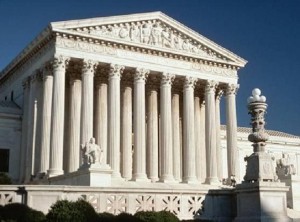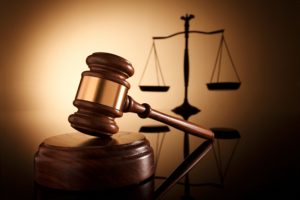Out of the Shadows: Peremptory Juror Strikes At Issue in Flowers v. Mississippi
 On June 20, 2019, the United States Supreme Court reversed the conviction of Curtis Flowers. The most recent appeal marks the sixth time that Mr. Flowers has been tried for charges arising from a quadruple homicide that occurred at the Tardy Furniture Store in Winona, Mississippi. Mr. Flowers has been incarcerated for over 20 years, as he awaits trial. Throughout this time, Mr. Flowers has consistently maintained his innocence. By way of background, Mr. Flowers is black. Douglas Evans, the prosecuting attorney of all six trials, is white.
On June 20, 2019, the United States Supreme Court reversed the conviction of Curtis Flowers. The most recent appeal marks the sixth time that Mr. Flowers has been tried for charges arising from a quadruple homicide that occurred at the Tardy Furniture Store in Winona, Mississippi. Mr. Flowers has been incarcerated for over 20 years, as he awaits trial. Throughout this time, Mr. Flowers has consistently maintained his innocence. By way of background, Mr. Flowers is black. Douglas Evans, the prosecuting attorney of all six trials, is white.
APM’s investigative podcast titled In the Dark conducted an in-depth analysis of the case. The podcast explores the nature of the circumstantial evidence that the prosecution relied upon. It scrutinizes the methodology of the investigating officers and explores alternative innocent interpretations of the evidence proffered. But, for the purpose of the appeal, sufficiency of evidence is not at issue. The narrator, Madeleine Baran, explains that “we’ve talked to hundreds of people who live in this part of Mississippi and it’s clear that the way people think about the Curtis Flowers case for the most part depends on whether they are white or black.” And it is the issue of race, which is at the heart of the appeal recently decided by the United States Supreme Court.

 Currently before the State Legislature are bills regarding the State Public Defender private bar appointment rate. Currently the rate is $40 per hour (the lowest in the nation), but the bill is proposing to raise the rate to $70 per hour. Recently a petition to the Wisconsin Supreme Court attempted to get the Supreme Court to raise the private bar rate of the public defender to $100 per hour. While the Supreme Court acknowledged the current rate as woefully inadequate, it did not take action regarding the public defender appointed rate, although it did raise the court-appointed rate effective next year to $100 per hour for all court-appointed lawyers.
Currently before the State Legislature are bills regarding the State Public Defender private bar appointment rate. Currently the rate is $40 per hour (the lowest in the nation), but the bill is proposing to raise the rate to $70 per hour. Recently a petition to the Wisconsin Supreme Court attempted to get the Supreme Court to raise the private bar rate of the public defender to $100 per hour. While the Supreme Court acknowledged the current rate as woefully inadequate, it did not take action regarding the public defender appointed rate, although it did raise the court-appointed rate effective next year to $100 per hour for all court-appointed lawyers. A Warren Court cornerstone has been “remastered and upgraded,” as they say, by the Wisconsin Supreme Court in a case that has riled the waters nationally. In Brady v. Maryland (1963), the Warren Court held that prosecutors must disclose exculpatory evidence to the defense. No hiding the ball. Over fifty years of case law, however, has occluded the rule with sundry conditions and qualifications that obscure its modest disclosure provision. More time is spent describing the ball than looking for it.
A Warren Court cornerstone has been “remastered and upgraded,” as they say, by the Wisconsin Supreme Court in a case that has riled the waters nationally. In Brady v. Maryland (1963), the Warren Court held that prosecutors must disclose exculpatory evidence to the defense. No hiding the ball. Over fifty years of case law, however, has occluded the rule with sundry conditions and qualifications that obscure its modest disclosure provision. More time is spent describing the ball than looking for it.